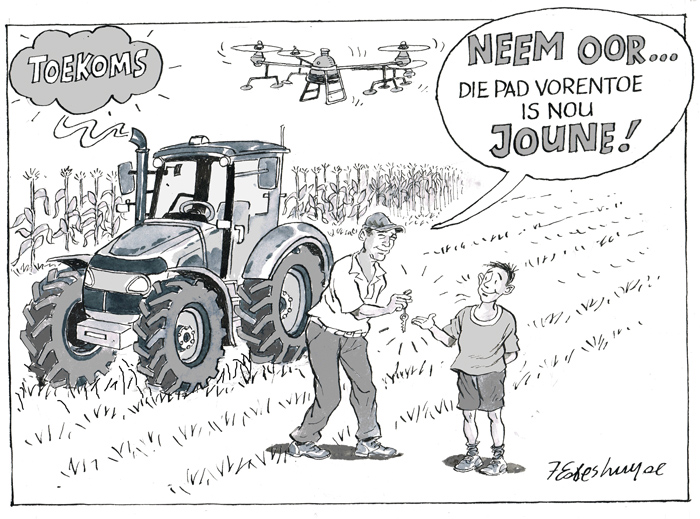
CEO, Grain SA pieter@grainsa.co.za
Over the past few decades, we have become accustomed to incredible population growth, particularly in Oriental countries such as China, India and Indonesia. Through policy China could turn it around and the Chinese population is now on a downward curve.
Rapid changes are being experienced everywhere, as seen over the past couple of years. Now it is being predicted that what will happen in the next decade will change the world forever – particularly in agriculture. It is shocking when one starts listening and thinking about what can and will happen, especially when we look at the realities that are unfolding globally around us. It is nothing new, but back to population, it is predicted that the population growth on the African continent will be different from the rest of the world. It will put pressure not only on infrastructure, food production and food availability, but also on political stability. It is logical that a younger population is needed to keep and support older people. In a country like Japan, where more adult diapers are sold these days than baby diapers, this pressure is certainly greater than in other parts of the world.
 Globalisation has made us accustomed to world trade and the focus of economists have long been on comparative advantage. In other words this means that nations specialise their production where they have an advantage and can produce cheaper. This is all well and good and makes sense in an environment where just-in-time logistics run smoothly, but the challenges faced by the world over the past three years have clearly highlighted the risks of this viewpoint.
Globalisation has made us accustomed to world trade and the focus of economists have long been on comparative advantage. In other words this means that nations specialise their production where they have an advantage and can produce cheaper. This is all well and good and makes sense in an environment where just-in-time logistics run smoothly, but the challenges faced by the world over the past three years have clearly highlighted the risks of this viewpoint.
We well know what the production potential in Africa is, but the question remains how we as Africans will manage to unlock this potential in a meaningful (and sustainable) way. Despite all the negatives and warning lights, we know that in many facets, technology is on our side. Although it does not come cheap, technology is one of the only drivers that is deflationary – therefore able to reduce cost per unit. With energy currently being one of the biggest challenges as well as the scapegoat for inflation, it is difficult to believe the predictions that the world will have an excess of energy within the next 20 years! We see that the first fusion power plant* should be active in 2035 to further contribute to other renewable energy sources and perhaps smaller and local distribution networks that will be more reliable than national networks.
The second major change that is near, especially for rural Africa, is communication networks. The impact of wider ranging high-speed communication will most likely be the result of lower frequency networks. At the same time the world of sensors and other possibilities are being unlocked that will change the way we work for ever – especially at farm and industry level. To the optimist and friends this sounds easy and rosy, but we know only hard work and creative ideas will keep us successful.
It is therefore important for Grain SA to ask members to think with us and keep refining the goals that we focus on and pursue. Economic sustainability remains our main focus, but we also concentrate on the younger generation that has to become more involved as well as the absolute necessity of the commercialisation of emerging producers. Furthermore, it is vital that Grain SA as an industry organisation gets a wider representation in order to be able to negotiate and drive issues unanimously. For this, better and more effective cooperation with value chain role-players is crucial.
Many thanks to Pieter Geldenhuys, a futurist, for a lot of inspiration and ideas to keep us focussed on the future and make us look past all the negatives with hope. I know it is the practical men, women and children who will change our world and make it a better place with these great and new ideas. Let us continue thinking and dreaming together, exciting hope exists! Enjoy farming!












